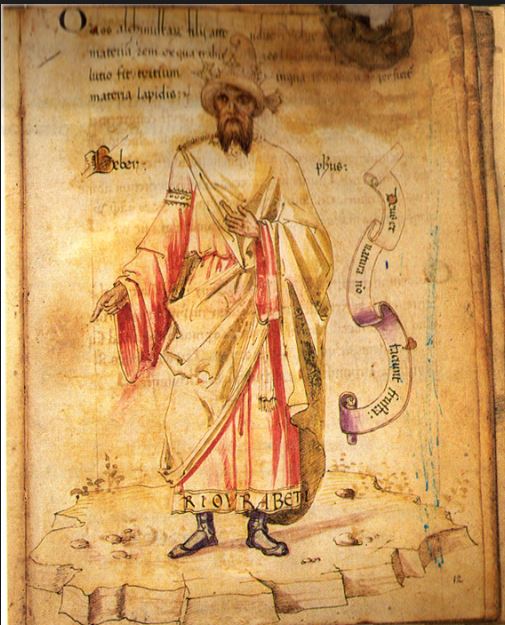
Islamic Alchemy- Some post-Jabirean key writers.
IN PROGRESS
Stephen Lambden UCMerced.
The many dimensions of post-Jabirean Islamic alchemy cannot be entered into here. It must suffice to note that alchemy "occupied a considerable place in the attentions of the Muslim savants" (Lewis SSI:500), though a fair number of scientists and intellectuals including al-Masudi (Muruj VIII. 175-7 ) and [the mature?] Avicenna disputed or rejected the possibility of the transmutation of metals by alchemical treatment. There follows a brief suvey of the names and contributions of a few major Islamic alchemists who prepared the way for Bābī- Bahā'ī expressions of alchemical gnosis.
Abu Bakr Muhammad ibn Zakariyya, al-Razī (d. 925 CE)
Abu Bakr al-Razī (d. 925 CE) was more interested in practical chemistry and medicine than in alchemy though he wrote some twenty books on the subject and defended alchemy against the attacks of such doubters as al-Kindī. He claimed to have prepared the "Philosophers Stone".
Muhammad ibn Umayl (d. 960)
Ibn Umayl was the author of complex allegorical and vastly erudite alchemical odes and treatises, including the Epistle of the Sun to the Crescent Moon [an ode ] and The Silvery Water and the Starry Earth [a commentary on the former work ]. Both these works were translated into Latin in the Middle Ages. Hermetic philosophy is important for him. His writings contain sayings of Hermes who was, for many Muslims, the first alchemist.
`Abu al-Qasim al-`Iraqī (13th cent. CE.)
al-`Iraqī wrote an important treatise entitled `Knowledge Acquired Concerning the Cultivation of Gold' which was translated by Holmyard in 1923. This work gives "a good picture of contemporary Islamic alchemical ideas" (Holmyard Alchemy:100). His Kitab al-aqalim al fā cIlm al-Mausum bi'l-Sanca ("Book of the seven Climes on the Science known as the Art [of Alchemy]') is a commentary "in the form of tales and parables struck out by informative pictures" on his earlier alchemical output. al-`Iraqi underlined the need to keep alchemical gnosis secret lest all become rich and the social order be disrupted. In his al-kanz al-afkhar (The Most Glorious Treasure) he sets forth an alchemical parable apparently modelled on sayings of Ibn al-`Arabī, (1165- 1240), Jābir ibn Hayyān, Plato and Dhu'l Nūn al-Misri.
`Izz al-Din Aydamir b. `Alī al Aydamir al-Jildaki (d. c. 1342 CE?)
al-Jildaki was an outstanding and widely traveled Egyptian alchemist. His works are very numerous, largely unstudied and the fruit of sebenteen years journeying in search of alchemical mss. and adepts. In his The End of Search he quotes from no less than forty two works ascribed to Jabir as well as other writings of Ibn Umayl, Avicenna, [Ps-] al-Majriti, [Ps-] Khalid and al-Razi. His Book of the Proof contains a commentary on a Book of the Seven Idols ascribed to Apollonius of Tyana.
Such then, were a few leading Muslim alchemists. Bearing in mind that alchemy lived on after Jildaki and is still alive today in the Muslim world1 we may now turn to say something about the Shayki Bābā and Bahāā alchemical tradition.



